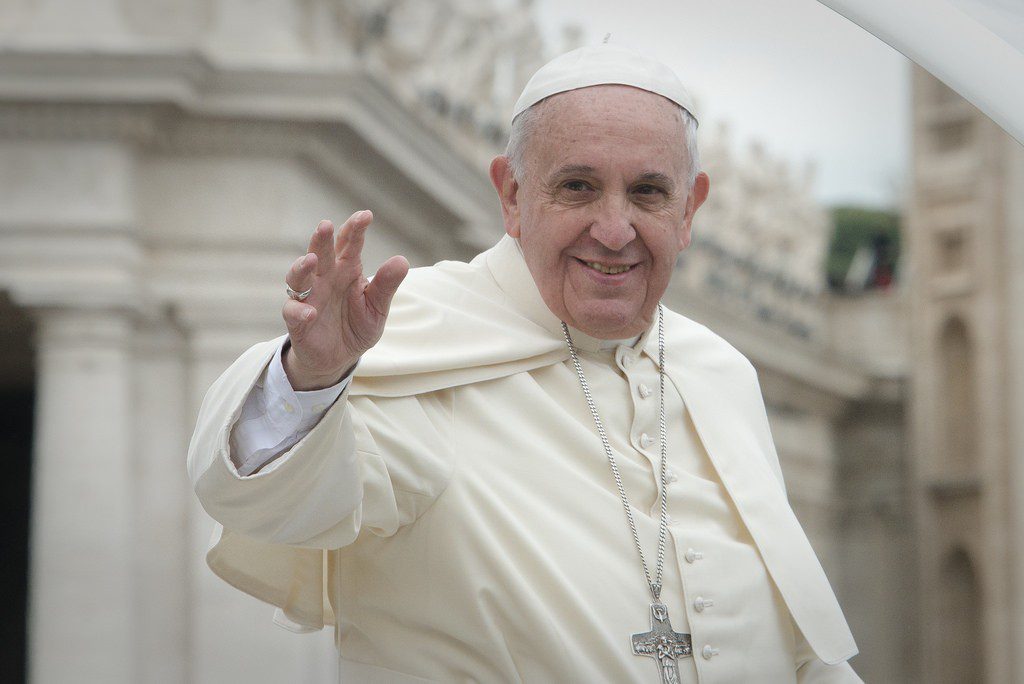in the new apostolic exhortation, “The Joy of Love”?
Nothing that I can pin down with certainty — or, at least, I can’t pin down the long-term impact of the document. It reportedly has long passages on the importance of marriage, and speaks of the need to prepare couples for marriage and counsel them once married, and quite unambiguously rejects same-sex marriage. The fuzzier issue is what the pope has to say about those who reject church teaching.
I’ll be honest — I haven’t read this, and I don’t expect to in the near future, and, at the same time, I don’t think I’d feel any more enlightened by reading the whole text than by reading the excerpts I’ve seen already. From what I understand, he has emphasized the importance of conscience, but has written without explicit prescriptions of what to do, and anyone looking for a direct statement on under what circumstances a cohabitating couple may take communion (or what pastoral staff should say if asked the question) won’t find it here. He is trying to walk that fine line of reaching out and encouraging greater welcome, while also teaching that the Church’s understanding of God’s plan for marriage and family is not just an arbitrary set of rules but has real meaning and value.
But here’s some of the commentary I’ve seen:
CNN reports that
Pope Francis put his shoulder to the doors of the Catholic Church and shoved them open a little wider Friday, calling for the church to be more tolerant in practice while not changing any official doctrines. . . .
He emphasizes that “unjust discrimination” against gays and lesbians is unacceptable, downplays the idea of “living in sin” and suggests that priests should use their own discretion on whether divorced Catholics in new marriages can take Communion.
They also quote Father James Martin, without a link, but they seem to be referring to his reaction in America, where he writes,
Divorced and remarried Catholics need to be more fully integrated into the church. How? By looking at the specifics of their situation, by remembering “mitigating factors,” by counseling them in the “internal forum,” (that is, in private conversations between the priest and person or couple), and by respecting that the final decision about the degree of participation in the church is left to a person’s conscience (305, 300). (The reception of Communion is not spelled out here, but that is a traditional aspect of “participation” in church life.) Divorced and remarried couples should be made to feel part of the church. “They are not excommunicated and should not be treated as such, since they remain part” of the church (243).
What do you make of this? The Pope didn’t just say that anyone who wants to receive communion, can, but one suspects that it’ll be interpreted that way.
The National Catholic Reporter staff gathers some reaction, citing optimism and, at the same time, displeasure from a gay & lesbian Catholic group that the document did not include any changes in Church teaching on same-sex relationships.
And Edward Pentin, writing at the National Catholic Register, provides a substantial summary of the document, emphasizing the ambiguity of the text. A couple paragraphs:
Chapter Eight, probably the most controversial element, deals with “accompanying, discerning and integrating weakness”. It’s a chapter, the Pope writes, that “everyone should feel challenged by” and which the Vatican describes as “very sensitive.” The field hospital analogy he first employed early in his papacy is reused, and the Pope reaffirms what Christian marriage is. He then notes exceptions that contradict the ideal, while at the same time stating that the Church “does not disregard the constructive elements” in those exceptions.
Francis speaks in the chapter of a “need to avoid judgments” that don’t take account of the “complexity of various situations,” and stresses the need of “reaching out to everyone.” The divorced, he writes, should not be pigeonholed in “overly rigid classifications” leaving no room for personal and pastoral discernment.
The Pope tackles the matter of divorced and civilly remarried persons in this chapter, calling for them to be more fully integrated into the life of the Church while avoiding “any occasion of scandal.” In a key paragraph, he states that considering the immense variety of concrete situations, “it is understandable that neither the Synod nor this Exhortation could be expected to provide a new set of general rules, canonical in nature and applicable to all cases.”
Instead, the Pope says what is needed is simply a “renewed encouragement” to undertake a “responsible personal and pastoral discernment of particular cases, one which would recognize that, since ‘the degree of responsibility is not equal in all cases,’ the consequences or effects of a rule need not necessarily always be the same.” The Pope, the Vatican says in its summary of the document, develops in-depth the kind of discernment needed for “profound dialogue between the faithful and their pastors.”
What does this all mean? Near as I can tell, not an awful lot until we see how this plays out. I would guess that the German and Austrian cardinals would be tempted to use the statement about local circumstances as an invitation to indeed announce that communion is open to everyone, but will they? At the same time, will exhortations about support for families inspire local parishes or dioceses to increase their activity in terms of instruction and counseling, or are they stretched too thin? After all, it’s a lot easier, and less time-consuming, and requires less neck-sticking-out, to say, “do what your conscience tells you.”











